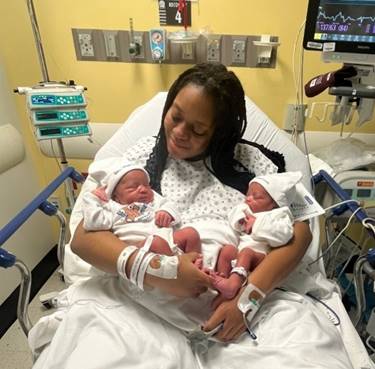ROME (AP) — Italian Premier Giorgia Meloni’s far-right-led government scored a victory Tuesday with the Senate approving a law allowing anti-abortion groups access to women considering ending their pregnancies. The development revives tensions around the issue of abortion in Italy, 46 years after it was legalized in the overwhelmingly Catholic country.
The Senate, where the government has a majority, voted 95-68, giving final approval to legislation tied to European Union COVID-19 recovery funds that included an amendment sponsored by Meloni’s Brothers of Italy party.
The law, already passed by the lower Chamber of Deputies, allows regions to permit groups “with a qualified experience supporting motherhood” to have access to public support centers where women who are considering abortions go to receive counseling.
For the right, the amendment merely fulfills the original intent of the 1978 law legalizing abortion, known as Law 194, which includes provisions to prevent the procedure and support motherhood.
For the left-wing opposition, it chips away at abortion rights that opponents had warned would follow Meloni’s 2022 election.
“The government should realize that they keep saying they absolutely do not want to boycott or touch Law 194, but the truth is that the right-wing opposes women’s reproductive autonomy, fears women’s choices regarding motherhood, sexuality, and abortion,” Cecilia D’Elia, a Democratic Party senator, said at a protest this week against the legislation.
Under the 1978 law, Italy allows abortion on request in the first 12 weeks of pregnancy, or later if a woman’s health or life is in danger. It provides for publicly funded counseling centers to advise pregnant women of their rights and services offered if they want to terminate the pregnancies.
But easy access to abortion isn’t always guaranteed. The law allows health care personnel to register as conscientious objectors and refuse to perform abortions, and many have — meaning women sometimes have to travel far to have the procedure.
Meloni, who campaigned on a slogan of “God, fatherland and family,” has insisted she won’t roll back the 1978 law and merely wants to implement it fully. But she has also prioritized encouraging women to have babies to reverse Italy’s demographic crisis.
Italy’s birthrate, already one of the lowest in the world, has been falling steadily for about 15 years and reached a record low last year with 379,000 babies born. Meloni’s conservative forces, backed strongly by the Vatican, have mounted a campaign to encourage at least 500,000 births annually by 2033, a rate that demographers say is necessary to prevent the economy from collapsing under the weight of Italy’s aging population.
Meloni has called the left-wing opposition to the proposed amendment “fake news,” recalling that Law 194 provides for measures to prevent abortions, which would include counselling pregnant women about alternatives. The amendment specifically allows anti-abortion groups, or groups “supporting motherhood,” to be among the volunteer groups that can work in the counseling centers.
“I think we have to guarantee a free choice,” Meloni said recently. “And to guarantee a free choice you have to have all information and opportunities available. And that’s what the Law 194 provides.”
The new tensions over abortion in Italy come against the backdrop of developments elsewhere in Europe going somewhat in the opposite direction. France marked International Women’s Day by inscribing the guaranteed right to abortion into its constitution. Last year, overwhelmingly Catholic Malta voted to ease the strictest abortion laws in the EU. Polish lawmakers moved forward with proposals to lift a near-total ban on abortion enacted by the country’s previous right-wing government.
At the same time, Italy’s left fears the country might go the way of the U.S., where states are restricting access after the U.S. Supreme Court struck down landmark legislation that had guaranteed access to abortion nationwide.
Elly Schlein, head of Italy’s opposition Democratic Party, told a conference on women on Tuesday that the country needs to establish an obligatory percentage of doctors willing to perform abortions in public hospitals, “otherwise these rights remain on paper only.”
























